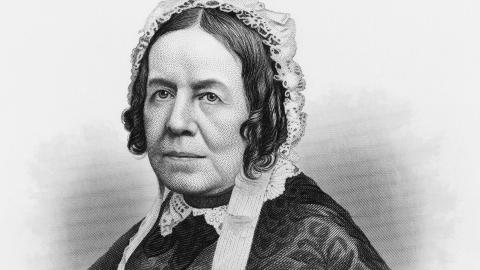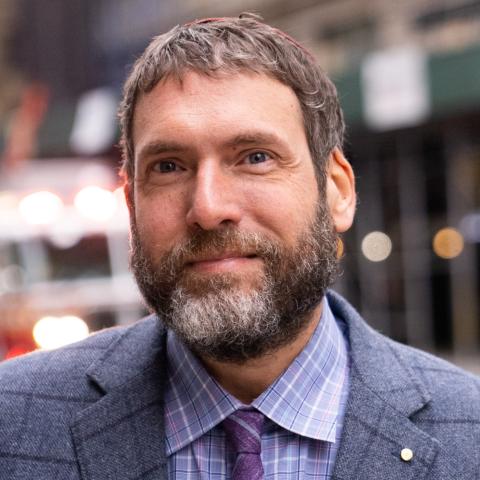It is not often that an intra-university dispute on whether to ask for toleration rather than respect gets international press coverage. But such has been the fate of recent events at England’s venerable University of Cambridge. The story is especially instructive since in our religiously plural world we are inundated with exhortations to respect a range of religious beliefs.
The brouhaha began when a committee headed by Professor Stephen Toope, the university vice-chancellor (American translation: “president”), offered a set of guidelines ostensibly to protect and promote free speech at the university. But, as in so many other hallowed halls of academia, freedom of speech, and thought, appeared to take second place to restrictions on speech.
One recommendation the committee offered was that students, staff, and visitors should be able to “express new ideas and controversial or unpopular opinions within the law, without fear of disrespect or discrimination,” and be “respectful of the diverse identities of others.”
What at first glance appears to be a bland affirmation of anodyne sentiment is in fact a theoretical minefield. As one of its critics, Professor Arif Ahmed, a reader (American translation: “senior professor”) in philosophy, said, “‘Respect’ as used here may be taken to imply admiration or approval. We should not be expected to respect all opinions or identities that the law permits, eg patently false views concerning vaccination or climate change.”
Noted English actor Stephen Fry, a Cambridge graduate who has played a Cambridge graduate on TV, offered similar critiques. In The Sunday Times, he stated that he did not doubt that the “rather muddled insistence on automatic ‘respect’” was promoted “for the best motives.” Perhaps we could almost say that he respected it. But he added, trenchantly, that “a demand for respect is like a demand for a laugh, or demands for love, loyalty and allegiance. They cannot be given if not felt… what is really being asked is a pretence, a display of lip-service, which in a university whose reputation is founded on empirical and rational inquiry, open argument and free thought, is surely inimical.”
Ahmed suggested substituting variations of the word “tolerance”—that people should be able to express their views “without fear of intolerance.” He added, “While views need not be respected, we should however permit them to exist. That is exactly what ‘tolerance’ means.”
Another professor (American translation: “very senior professor”), Ross Anderson, argued, “It’s our duty to tolerate colleagues even when they say things that we consider foolish, when we find their views offensive we should point that out politely. We should not be running to the vice chancellor asking him to censor them.”
This and other amendments were suggested to the vice-chancellor’s committee, but were rejected. So a group of faculty, students, alumni, alumnae, and others pushed to have a vote on the matter taken by the university’s governing body, the Regent House, which comprises almost everybody employed there.
The vote went ahead, and the results were announced on December 9. They gave a startingly clear message: the vote to replace “respect” with “toleration” passed by 87 percent (actually 86.9 percent)—enough to avoid a recount even in an American presidential election. The revised wording on free speech affirms the right to express “controversial or unpopular opinions within the law, without fear of intolerance or discrimination.” Guidelines adopted after the vote called for “staff, students and visitors to be tolerant of the differing opinions of others.”
The Regent House overturned other parts of the original proposals by votes of 80 percent and 77.8 percent. The changes mean that the updates to the University Statement on Freedom of Speech now spell out that outside speakers can be barred only if they are likely to use “unlawful speech” or cause actual legal problems.
Vice-Chancellor Toope then stated, “I welcome the result of the vote by the Regent House today which is an emphatic reaffirmation of free speech in our University. The University will now implement the amended statement and this marks the conclusion of the democratic decision-making process on this matter.”
He added:
Freedom of speech is a right that sits at the heart of the University. This statement is a robust defence of that right. The University will always be a place where anyone can express new ideas and controversial or unpopular opinions, and where those views can be robustly challenged. The statement also makes it clear that is unacceptable to censor, or disinvite, speakers whose views are lawful but may be seen as controversial.
This fulsome praise offered with a straight face of wording that he had earlier refused to incorporate into the guidelines indicates that Toope may have a future in politics, or perhaps we should say to graduate from academic politics to state politics.
Of course, the word “toleration” can itself be a minefield, and it has been in American history. In the formation of the Virginia Declaration of Rights, James Madison famously argued in favor of removing the idea that everyone should have “fullest Toleration” of their religion and instead urged that the wording should be changed to “free exercise of religion,” which it was. I believe that toleration should properly mean “putting up with something or someone we dislike or disagree with” and hence, as Madison argued, should not be in a declaration of rights. But the word is now often denigrated as bigoted, because it implies that something is held to be wrong, or else is castigated as a synonym for approval—but that is a subject for another day. Here the word and concept is an advance over the vague demand for some nebulous “respect,” which itself comes dangerously close to a demand for approval or, as Fry says, even allegiance.
It is refreshing to see such an overwhelming vote on such a contentious and sometimes subtle issue. We can hope that similar clarity can be brought to the mélange of vague words now being tossed around in our own politics.
Read in Providence



















